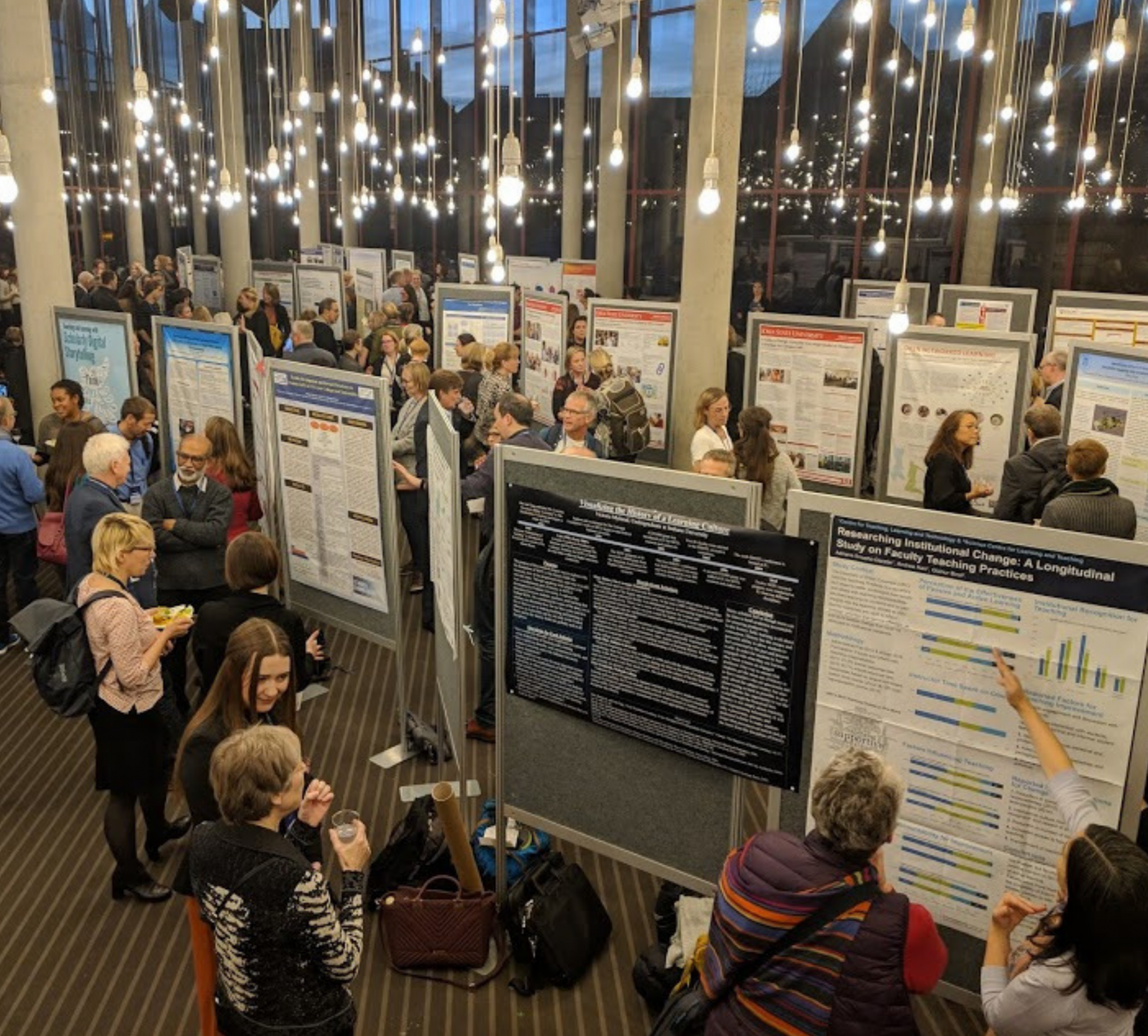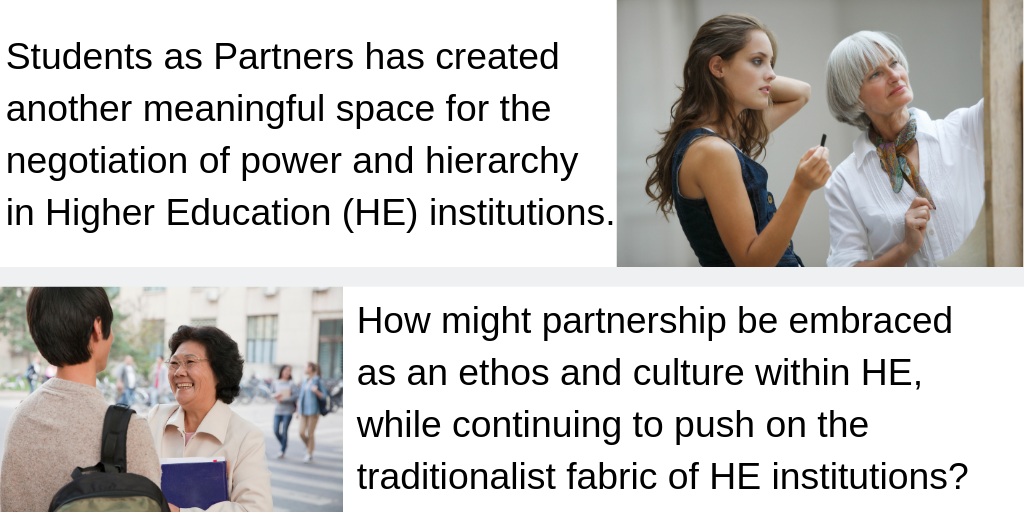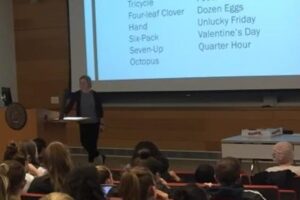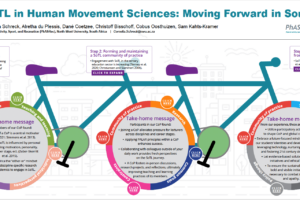
Students as Partners at ISSOTL 2018
- Posted by ISSOTL Admin
- Categories Blog
- Date March 23, 2019

[Editor’s Note: This post was originally published by the Center for Engaged Learning and is re-posted with permission.]
by Sophia Abbot and Ketevan Kupatadze
Students as Partners (SaP) had a major presence at the 2018 International Society for the Scholarship of Teaching and Learning (ISSOTL) conference in Bergen, Norway, this past October. Twenty of the 247 conference sessions, and two of the six pre-conference workshops were either focused on SaP work or drew on SaP literature. Not only were numerous panels organized around the topic, but our colleagues from diverse institutions were intrigued by this relatively new pedagogy and attended the presentations in the hopes of learning about SaP and applying it to their teaching in the future. We (Ketevan and Sophia) attended the conference and were struck by the prominent place SaP held within the larger SoTL conversations. We saw some of the core topics of SaP sessions this year pushing SoTL in important directions.
For the past few years, conversations have circled around the definition of student-faculty partnership practice, and partnership has mostly been celebrated as a transformative and highly positive experience for both students and faculty (Mercer-Mapstone, et al., 2017). As the field establishes and legitimizes itself, space has emerged for more complex critiques of the challenges of SaP work. We have seen a clear step towards more nuanced, and sometimes more critical, approaches to partnership.

For us, one theme stood out: the place and role of power and hierarchy. SaP sessions were asking big questions about the field: How do we navigate the complexities of hierarchy between students and faculty/staff? Why is the field disproportionately female, and how does that impact its being viewed as legitimate? What does it mean to level hierarchies through partnership when some faculty are already marginalized and made vulnerable by academia and society more broadly?
It was exciting to see power of faculty themselves get questioned. SaP was shown to be a much more complex practice than previously framed, as sessions examined the power or hierarchy that is generated by one’s identification with race, gender, social class, and nationality. Some presentations discussed vulnerabilities of faculty without secure positions, those of new faculty, women, women of color, etc. For example, the presentation titled “Identity, Social Location, and Staff Experiences of Pedagogical Partnership,” and led by Elizabeth Marquis, Rachel Guitman, Cherie Woolmer, and Elaina Nguyen, discussed how some faculty’s social location made it harder for them to engage with students. The presenters, while acknowledging that previous research has shown partnership to potentially give voice and agency to traditionally marginalized and equity-seeking groups on university campuses, also pointed out that the research has been heavily focused on student experiences, rather than faculty experiences, overlooking the reality that many members of the faculty themselves frequently have to navigate issues of discrimination and power, or lack thereof, due to their cultural, racial, social, gender, etc. (self)identification.
In a session about the International Journal for Students as Partners, a journal with a partnered student-faculty editorial board structure, student presenters described how the journal was conceived and co-run by students and could serve as a model for anyone in the future wishing to involve students heavily in a similar process. Following the presentation and later in our conversations, questions arose about the hierarchy that, despite its intentions otherwise, was still involved in the process of creating and managing the International Journal of Students as Partners. For example, we noted questions about the role of students as manuscript reviewers, as well as the process of recruiting students to serve on the journal’s editorial board. The journal serves as an example of how complex these relationships are and how power still continues to be negotiated.
Power relations in teaching and learning have come up at previous ISSOTL conferences as part of feminist pedagogy, critical race pedagogy, and many other lenses. These pedagogies undoubtedly have a history of presence at ISSOTL. But we think that SaP has created another meaningful space for the negotiation of power and hierarchy in Higher Education institutions. It sheds light on the intersectionality of the issues of power and hierarchy, and perhaps brings together people from different conversations and areas of research on power in new ways. Panels and presentations about SaP also allowed those who previously had not engaged in the dialogue about power to question, challenge, and reconsider the hierarchical relations that persist in higher educational institutions. ISSOTL 2018 sessions looked at the social and cultural power that interferes in the relationships we establish with students or that they establish with us. And, as in SaP conversations, the topic was raised not only in relation to faculty and students, but also in relation to the power that exists between administrators and faculty, and among faculty of diverse ranks.
ISSOTL this year seemed to intentionally tackle the issues of power and hierarchy. We feel these issues have been magnified by conversations on student-faculty partnerships, where it is imperative that hierarchy be addressed by nature of the close relationships partnership fosters. Partnership has established itself as yet another pedagogical practice that explicitly challenges hierarchical structures of higher education systems, and by bringing other practices/discourses together in dialogue, SaP helps make power a central and essential issue in SoTL. As partnership continues to establish itself, we wonder: How might partnership be embraced as an ethos and culture within the institution of higher ed, while continuing to push on the traditionalist fabric of these institutions? We look forward to exploring this idea more fully in future posts and at future ISSOTL meetings!
References
Mercer-Mapstone, et al. (2017). A systematic Literature Review of Students as Partners in Higher Education. International Journal for Students as Partners, 1(1), 1–23.
Sophia Abbot is the 2018-2020 Center for Engaged Learning Graduate Apprentice and a student in the Masters of Higher Education program at Elon University. She serves as a Student VP on the ISSOTL Board.
Ketevan Kupatadze, Senior Lecturer in Spanish in the Department of World Languages and Cultures, is the 2017-2019 Center for Engaged Learning Scholar at Elon University. Dr. Kupatadze’s CEL Scholar project focuses on student-faculty partnerships.




